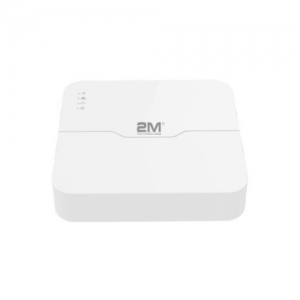When shopping for a security camera system, you have to choose between an NVR and DVR recorder. The recorders perform the same function, but they differ in how and what type of cameras you use. When evaluating which recorder to get, you must understand the difference between them.
NVR vs. DVR
NVRs and DVRs are both video recording systems. NVR stands for network video recorder, while DVR stands for digital video recorder. The area they differ in is how they process video data. A DVR system processes the videos at the recorder. An NVR system encodes and processes videos at the camera. The NVR is used for storage and remote viewing. NVRs and DVRs handle the video data differently, so they require different cameras. It is important to remember that NVRs can be wireless while DVRs are wired.
DVR Security Systems
Most of the savings, in DVR systems, come from the type of cameras you have to buy. You can use different cameras in your home security system, but there is less flexibility when it comes to DVR systems. In a DVR system, you use analog cameras to stream an analog signal to the recorder, which processes the images. The advantage of this is that it is not as complex as an NVR system.
The camera connects to the DVR recorder with a coaxial BNC cable. The cable doesn’t provide power to the camera. There are actually two cables within one for this. One is for power, and one is for video. The cables separate at each end to provide different functions. Because of this, you will need your DVR near a power outlet. Installation can be tricky because of the coaxial cables. It can be difficult to run the cables because they are rigid. However, if you have existing coaxial connections from an old system, you can use the same cable to connect your new system.
DVR Systems Continued
Standard coax cables do not support audio. An added RCA connection is needed. A DVR has a limited amount of audio input ports, so only a few cameras can record audio. After about 300ft, the image quality on a coaxial cable will begin to degrade. Also, lower quality cable with cause signal loss at shorter distances.
A DVR recorder relies on a hardware chipset called an AD encoder. This is responsible for processing the data streaming from the camera into video recordings. You must connect every camera directly into the recorder. Each camera connection will also need a splitter that supplies power to enable cameras to function. Because of this, they have less flexible mounting solutions. Also, because of the coaxial cable, it can be challenging to get your camera in a tight spot. A power outlet is required for each camera.
NVR Security System
These systems process video data at the camera, not on the recorder. NVR systems use IP cameras; these are standalone image capturing devices. IP cameras are capable of processing video data that gets transmitted to the recorder. Unlike analog cameras, IP cameras are capable of recording and sending audio with the video. Powerful hardware on the IP cameras makes it possible for features, such as facial recognition.
Similar to DVR systems, NVR systems connect to the camera via a recorder. NVR systems use regular ethernet cables, such as cat5e and cat6, to transmit data. Ethernet cables power the cameras using PoE (power over ethernet). This means the camera only needs one cable for video, audio, and power. Ethernet cables are easier to route and terminate because they are thinner and smaller, which allows for less drilling. They are also cheaper than coaxial cable and more readily available. This makes cable replacement or expansion easier and more affordable. Also, every camera on the system will be able to transmit audio because ethernet cables can send audio data inherently. The cameras and recorders do not need cables going between them. They just need to be on the same wireless network.
The recorder in an NVR system does not process video data. This is done on the camera before it is transmitted. NVRs are only used for storing and viewing the footage. In addition, NVRs receive a pure digital sound from the cameras.
Summary
Both systems are reliable and record video data. DVR systems sometimes lag a bit more than NVR systems, but the gap is lessening. Cost, how the data is transmitted, and types of cameras are the main differences. NVRs have better picture quality, easier installation, more flexibility, and native audio support on every camera. However, they are more expensive than DVR systems. If you are looking for a straightforward security system, a DVR is best. If you need a high-quality flexible solution, then NVR is best for you.

